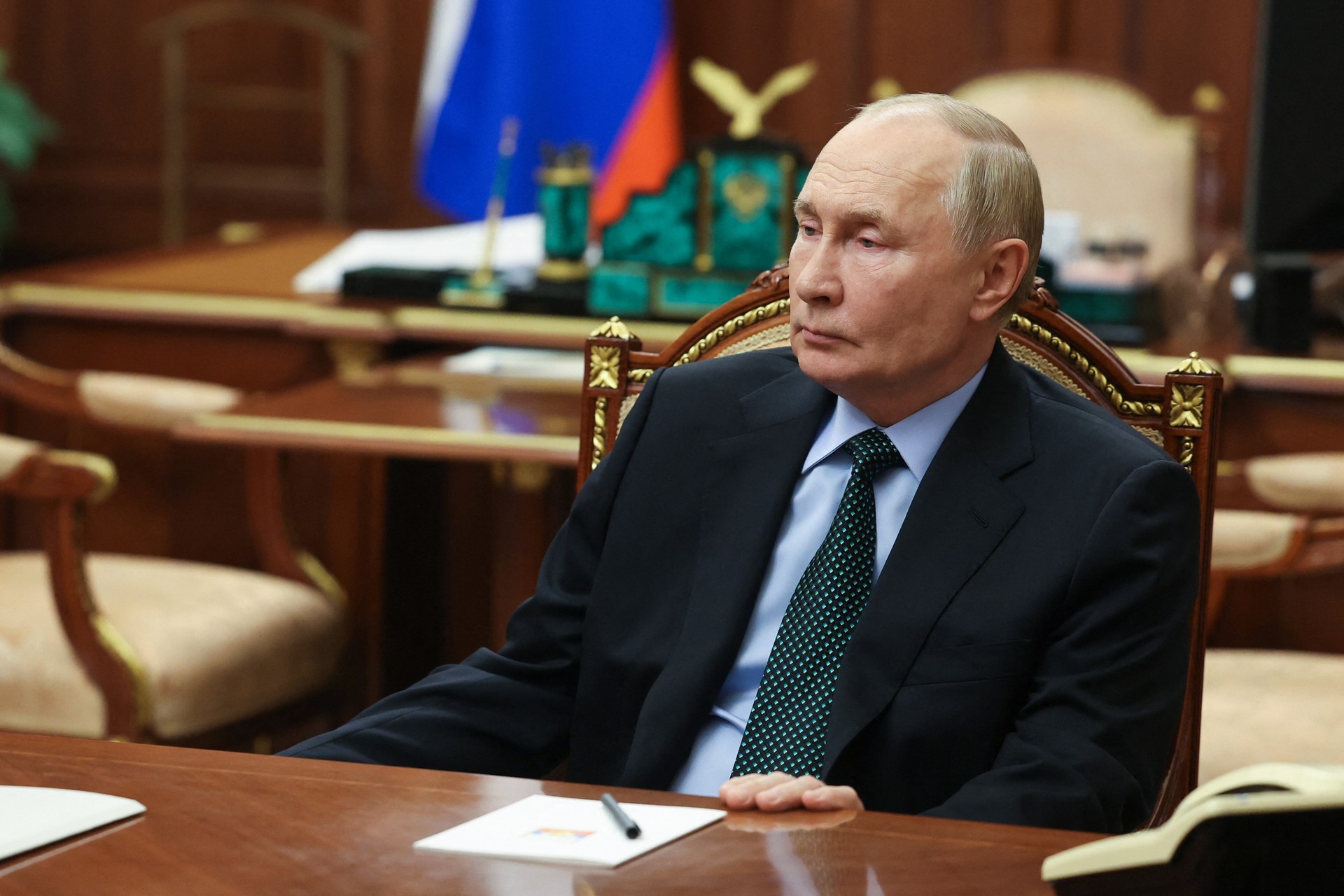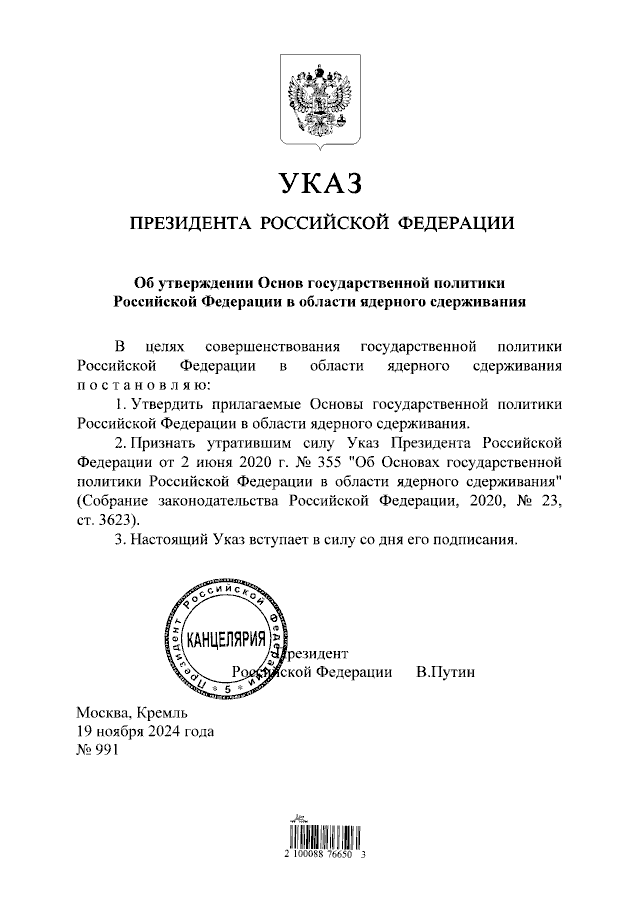Russia's Putin signs 'worrying' nuclear weapons decree in response to US step
Russia's President Vladimir Putin. (AFP Photo)
November 19, 2024 12:32 PM GMT+03:00
Russian President Vladimir Putin signs a decree allowing broader use of nuclear weapons.
Russian President Vladimir Putin has signed a decree approving the "Fundamentals of State Policy on Nuclear Deterrence," a strategic document outlining Russia's nuclear doctrine. The presidential order and full text of the policy have been published on the official government legal acts website.
Launch of ballistic missile on Russian soil may trigger nuclear response, according to Russia's nuclear doctrine updated by President Putin. The move comes on the 1000th day of Russia's offensive on Ukraine and after the United States gave Kyiv permission to use long-range missiles to strike military targets inside Russia.
Conditions for nuclear response
Under the new framework, Russia reserves the right to respond with nuclear weapons under several scenarios:
- A critical threat to Russia's sovereignty posed by conventional weapons.
- An attack on Belarus, a member of the Union State, which will be regarded as an attack on Russia.
- A mass launch of military aircraft, cruise missiles, drones, or other aerial vehicles crossing Russian borders.
Key principles of Russia's new nuclear policy
The document establishes the following core principles for Russia's nuclear deterrence strategy:
- Defensive Nature: The policy emphasizes that Russia's nuclear strategy is defensive and views nuclear weapons as a means of deterrence, with their use being a last resort under extreme circumstances.
- State Priority: Deterrence against potential aggression targeting Russia or its allies is described as one of the highest state priorities.
- Territorial Defense: Russia may employ nuclear weapons in response to aggression that poses a critical threat to the territorial integrity of either Russia or Belarus, a close ally within the Union State.
- Coalition Aggression: An attack on Russia or its allies by any member of a military coalition will be treated as an act of aggression by the entire coalition.
- Joint Attacks: Aggression by a non-nuclear state, if supported by a nuclear-armed country, will be considered a coordinated assault against Russia.
- Response to WMD Use: Russia reserves the right to use nuclear weapons in retaliation for an attack involving weapons of mass destruction against itself or its allies.
- Targeting Potential Adversaries: The deterrence strategy applies to states, blocs, and alliances that regard Russia as an adversary.
- Maintaining Nuclear Forces: The policy calls for the maintenance of nuclear forces at levels sufficient for effective deterrence.
- Uncertainty as a Principle: Ensuring uncertainty for potential adversaries regarding the scale and locations of possible nuclear deployment is a core principle.
- Guaranteed Retaliation: The deterrence strategy aims to ensure potential adversaries understand the inevitability of retaliation in the event of aggression against Russia.
- Conflict Termination: The policy guarantees that nuclear deterrence will aim to end military conflicts on terms favorable to Russia.
- Readiness for Use: Maintaining a constant state of readiness for a designated portion of the nuclear deterrent force is cited as a key principle.
Details to follow...
November 19, 2024 12:32 PM GMT+03:00

